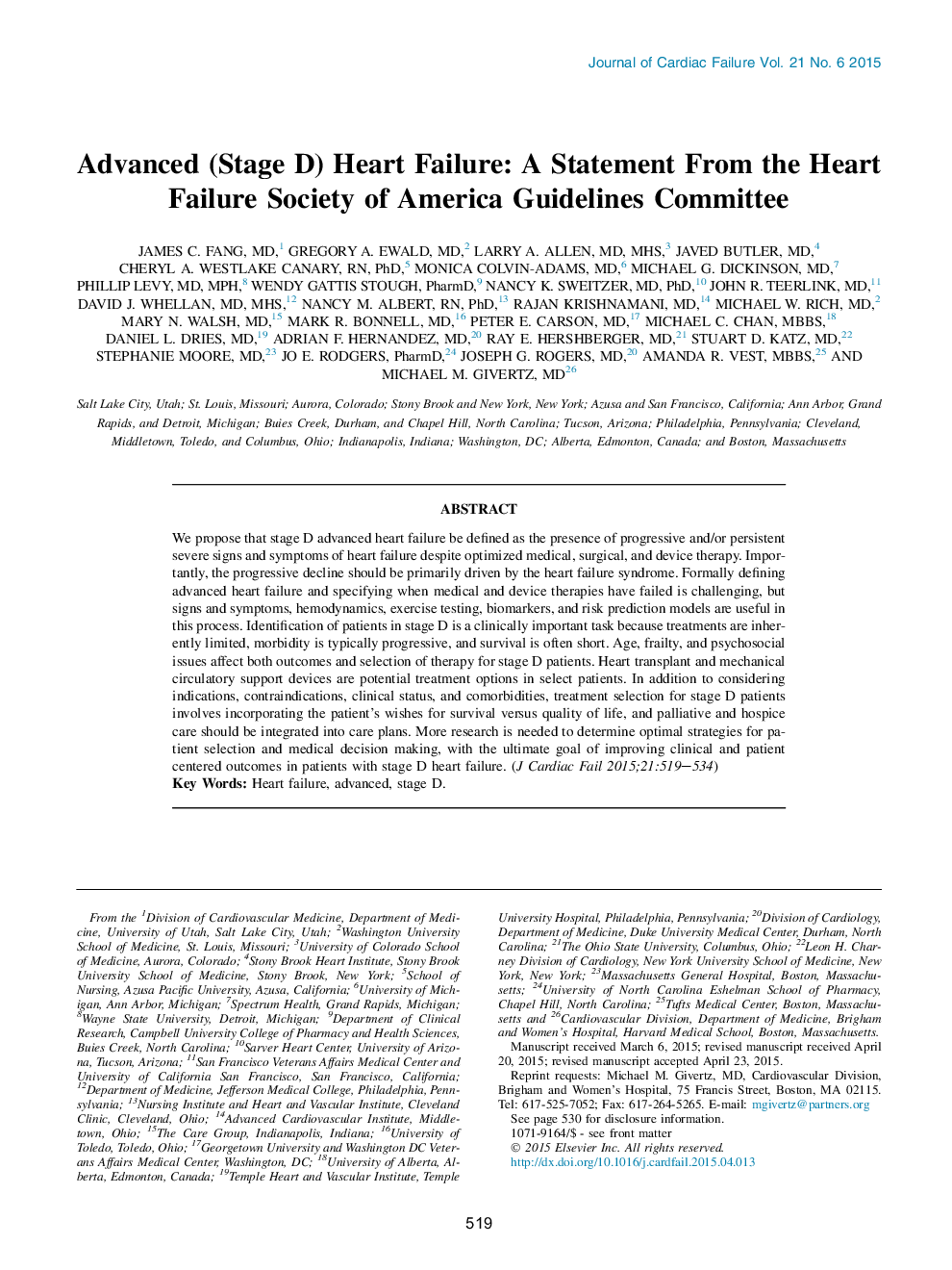| Article ID | Journal | Published Year | Pages | File Type |
|---|---|---|---|---|
| 2958898 | Journal of Cardiac Failure | 2015 | 16 Pages |
We propose that stage D advanced heart failure be defined as the presence of progressive and/or persistent severe signs and symptoms of heart failure despite optimized medical, surgical, and device therapy. Importantly, the progressive decline should be primarily driven by the heart failure syndrome. Formally defining advanced heart failure and specifying when medical and device therapies have failed is challenging, but signs and symptoms, hemodynamics, exercise testing, biomarkers, and risk prediction models are useful in this process. Identification of patients in stage D is a clinically important task because treatments are inherently limited, morbidity is typically progressive, and survival is often short. Age, frailty, and psychosocial issues affect both outcomes and selection of therapy for stage D patients. Heart transplant and mechanical circulatory support devices are potential treatment options in select patients. In addition to considering indications, contraindications, clinical status, and comorbidities, treatment selection for stage D patients involves incorporating the patient's wishes for survival versus quality of life, and palliative and hospice care should be integrated into care plans. More research is needed to determine optimal strategies for patient selection and medical decision making, with the ultimate goal of improving clinical and patient centered outcomes in patients with stage D heart failure.
